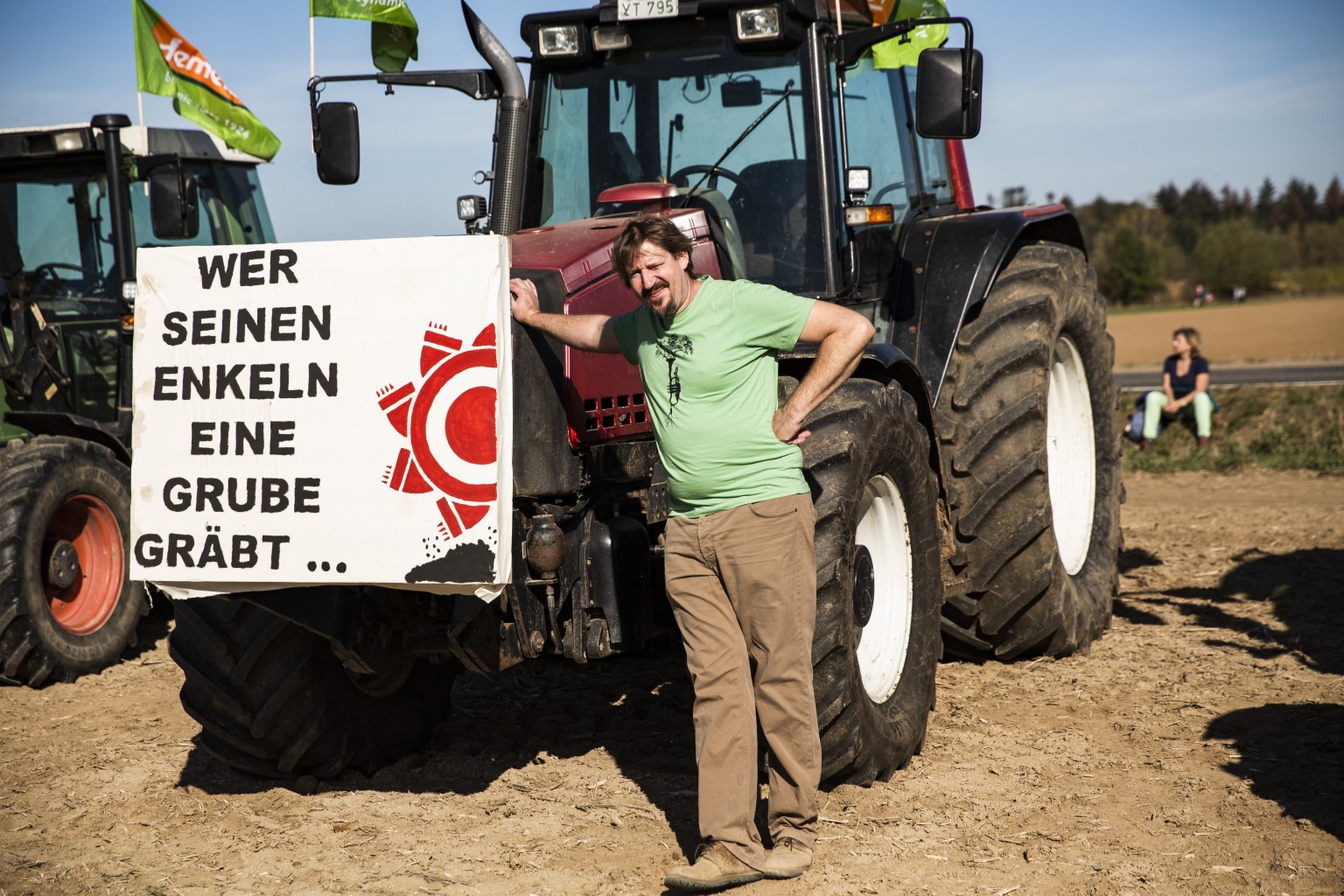European farmers are angry, and rightly so. Between 2003 and 2016, five million European farmers had to close down their farms. Right-wing demagogues are using their anger and creating a backlash against environmental protection, animal welfare and nature conservation. Yet, it is precisely the right-wing and conservative parties with their misguided agriculture policies who have put farmers into this dire situation. The solutions have existed for years: fair food prices, a green reform of EU agricultural subsidies and financial support for the transition to environmentally and animal-friendly agriculture instead of pouring money into large-scale industry and factory farming.
Fair food prices to fix the broken food system
But why is it that small farms in particular can no longer make a living from their agricultural production? This is due to the export orientation of our agricultural policies. Its aim is to keep food prices artificially low in order to be able to participate in the global market. Farmers are kept afloat with subsidies instead of being able to sell their products at fair prices therefore supporting themselves. Last year, the EU celebrated the 60th anniversary of the Common Agricultural Policy, also known as the CAP.The centrepiece of this CAP and by far the largest financial pillar are the so-called “hectare subsidies”, i.e. farmers receive a certain amount of money per hectare of land. This type of subsidisation favours large farms, mostly agribusinesses and factory farming. Their business model is based on the exploitation of workers, animals and nature as well as exporting their products at dumping prices. On the other side you have small and medium-sized farms which do not receive enough support to make a fair living. This sad state of affairs is also reflected in the number of farm closures. Every day, almost 1,000 farms in Europe go out of business, while the number of large farms has risen by seven percent since 2003. It is safe to say that is time for a real reform of the CAP: away from unlimited hectare support towards support for the first 60-100 hectares and financial support for farmers who invest in environmentally friendly cultivation and sustainable working methods.
However, the European People’s Party (EPP) in particular, is doing everything in its power to further strengthen this trend towards the intensification of agriculture, for example by pushing for a conclusion of the EU-Mercosur Agreement. While European farmers have to adhere to strict environmental, social and animal welfare standards, we import cheap food from countries where these standards do not apply or cannot be traced. These are utterly unfair practices, and also bad for climate and our environment.
It is no wonder that farmers are now rebelling against this unfair competition situation. Fulfilling these high standards also means additional costs in production while many are struggling to keeping their farm afloat as is. This desperate situation is exacerbated by the far right and conservative demagogues whose misguided agricultural and trade policies have led to the problems in the first place but are now acting as if they had nothing to do with it.
Rethinking our food production
While the farmers’ anger about the cost explosion is understandable, one thing must be clear: measures to protect the environment and preserve biodiversity are just essential for them and their businesses, as there is no food without nature. Agricultural production and environmental protection must go hand in hand. We need healthy soils and insects as pollinators for plants. We cannot “keep calm and carry on” : every year, we lose over 28 billion tonnes of fertile soil and 20,000 to 50,000 animal and plant species worldwide. Above all: farmers are among the first to feel the consequences of the climate catastrophe, such as drought and flooding.
We urgently need to turn away from climate-damaging intensive agriculture with factory farming, monocultures, pesticides and cheap production towards extensive agriculture on small and family-led farms. This requires an end to the price pressure in food production exerted by retail chains, for example through a ban on buying below production costs. At the same time, alternative and regional marketing methods such as vegetable boxes, food coops or farm-gate sales must be facilitated and supported.
In addition, it must be ensured that quality takes precedence over price in public procurement. Free and high-quality food from regional production in all schools and kindergartens can guarantee fair prices for producers as well as healthy nutrition for all children, regardless of their parents’ income.
The future of agriculture concerns us all. Our farmers provide us with top-quality food every day and also play an irreplaceable role in protecting the environment and nature. It is high time we supported them in this. We need to move away from unfair trade practices and subsidies for the agricultural industry towards small, diverse family farms. For the environment, animals, our food and our farmers.

